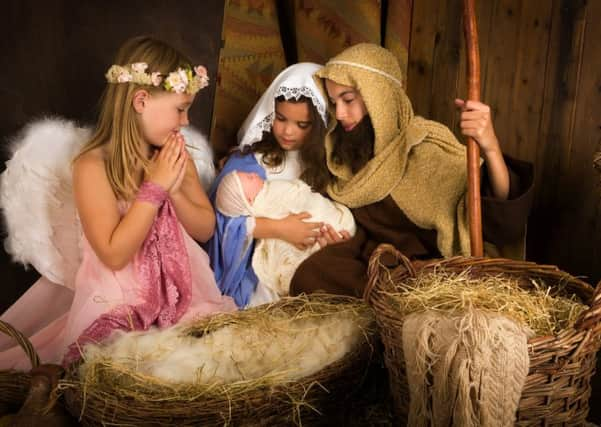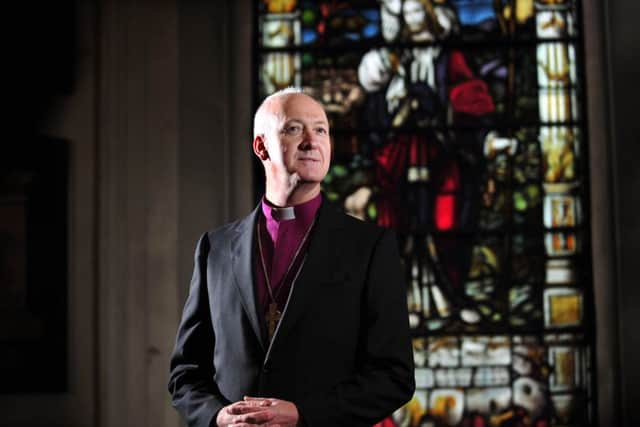Bishop of Leeds: Spirit of Christmas is its own great deal


He wrote: “Dear Jesus, I have been a really good boy this last year, so please can I have a bike for Christmas?”
He knew this was a bit of a fib so he threw it in the bin and tried again: “Dear Jesus, I have tried really hard this year and have mostly been a good boy; so, please can I have a bike for Christmas?”
Advertisement
Hide AdAdvertisement
Hide AdAgain, he knew this was pushing it a bit; so, in the bin it went, and then he wrote: “OK, Jesus, I haven’t been great this year, but I can try harder next year, ... if you give me a bike for Christmas.”


Then he threw it in the bin and gave up. “I need some fresh air,” he thought, and went out for a short walk before trying again.
As he went around the corner, he glanced inside a garden and saw a large Nativity set near a neighbour’s front door.
He checked no one was watching, nipped in, grabbed Mary, and hid her under his coat.
Advertisement
Hide AdAdvertisement
Hide AdThen he ran home, went up to his room, got out his pencil and paper and wrote: “If you wanna see your mother again, gimme the bike!”
At a time in our nation’s history when all the talk is of ‘deals’, it might be salutary to realise that deals are not everything.
Christmas tells us that we can’t bargain with God and there are no deals to be done.
Does this sound a bit odd?
Well, it should do.
We now seem to live in a culture that values economics, money and trade above all else.
Advertisement
Hide AdAdvertisement
Hide AdEach time I ask (in the House of Lords, for instance) for whom the economy exists, I get blank looks.
That the economy exists for the sake of people – and not vice versa – seems counter-cultural these days.
Not everybody welcomes the question: “What is the vision that Brexit is supposed to fulfil, and how do we quantify ‘the national interest?’”
Christmas has something powerful to say to us as individuals – yes; but it also challenges our social assumptions and rhetoric. Christmas says that people matter more than money, generosity more than the grasping of rights, love more than competition for advantage.
Advertisement
Hide AdAdvertisement
Hide AdChristmas whispers to an unsuspecting world that God comes into the ordinary and makes it extraordinary – not waiting until the world and our lives are all sorted, but coming among us as one of us and not open to bargaining, deal-making or competing.
This is why Christmas creeps up on us once a year, inviting us to put aside the truth claims of politicians, the power claims of those who have lost sight of dignity and social order, the pompous pretensions of those for whom status is everything.
The baby of Bethlehem is born to parents whose relationship is socially questionable; born in obscurity in territory occupied by a military power; born to be hunted by a king and sent into exile for his own protection.
A refugee as a toddler, he will lose his father by the age of 12, leave his family by 30, and be dead within two or three years.
And this is where the no-deals come in.
Advertisement
Hide AdAdvertisement
Hide AdThe people who would respond to Jesus were those who knew they had no pretensions to uphold – that God comes to them anyway.
And to those who assume that God is distant, standing remote from the muckiness of the world and keeping himself clean, Christmas says that God plunges into the heart of the real world – right into the places where the pain is most acute and life most bewildering or challenging. When I pray, this is a God who knows where I am and we are.
So, I will sing the carols of God’s free offering of himself in love to a complicated and sometimes brutal world.
And I will still feel a little unease when the organ strikes up with Adeste Fideles and its glorious descants: I still think we should be singing “O come, all ye faithless”.
Advertisement
Hide AdAdvertisement
Hide AdFor Christmas is the opening of God’s arms – and, therefore, of the arms of those who bear his name and claim faith in him – to a world that hasn’t asked for him, but longs for liberation and healing and redemption.
No deals. No bargains. No competition. Just grace, mercy, generosity and the possibility of a new start and a different way.
Fantasy? Nonsense? Or a message that dares us to think again about who we want to be and how we want our society to be shaped?
Christmas can be sidelined into some religious compartment that we drag out once a year but keep tamed and away from real life.
Advertisement
Hide AdAdvertisement
Hide AdWe can keep it as a remote and other-worldly fairy story... or we can dig deeper into the familiar story and ask what the God behind this story offers to people everywhere.
For myself, I will consider again the response that Christmas – God surprising earth with heaven – invites from me: to follow the Jesus of the gospels, wherever this leads, whatever it costs, and however it challenges my assumptions about the way the world is.
The Right Reverend Nick Baines is Bishop of Leeds.